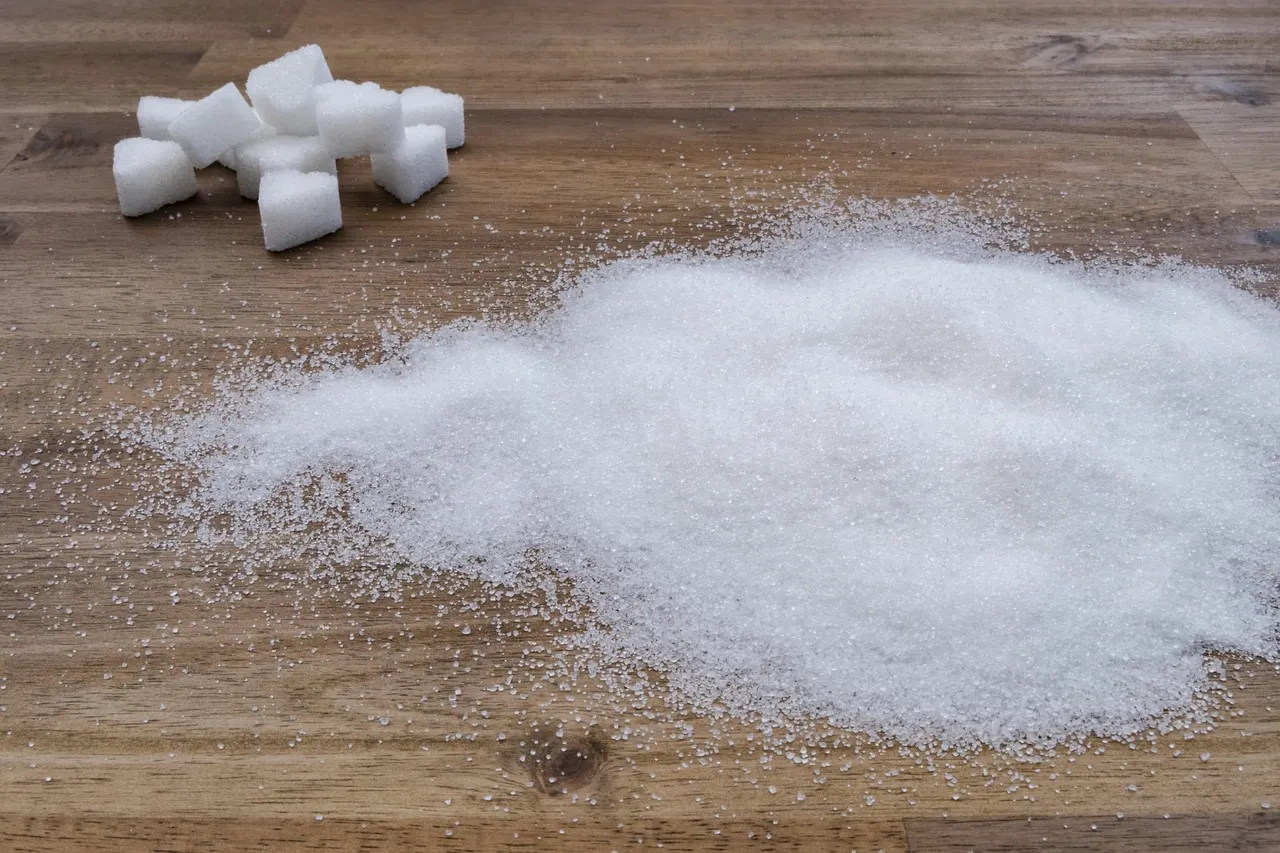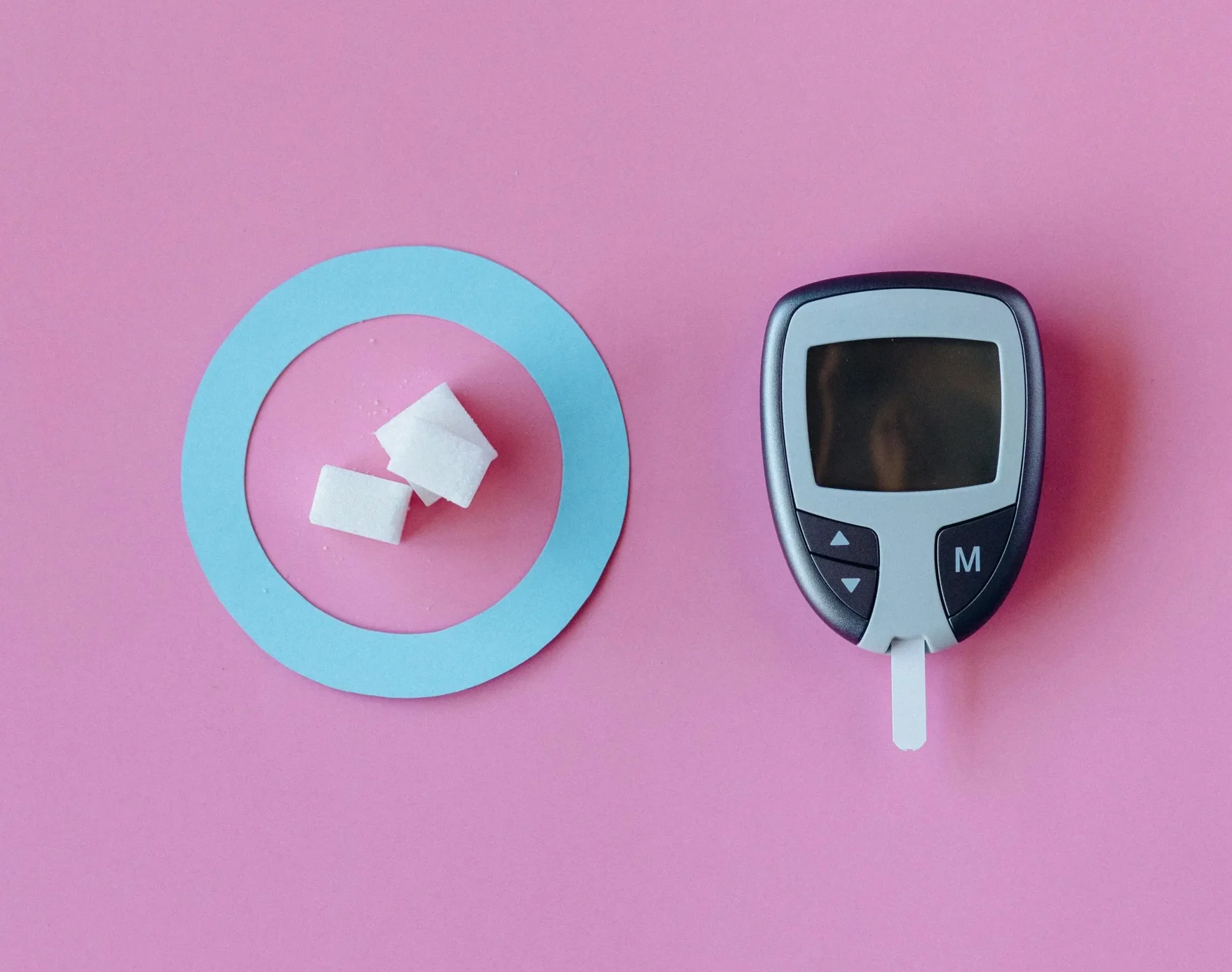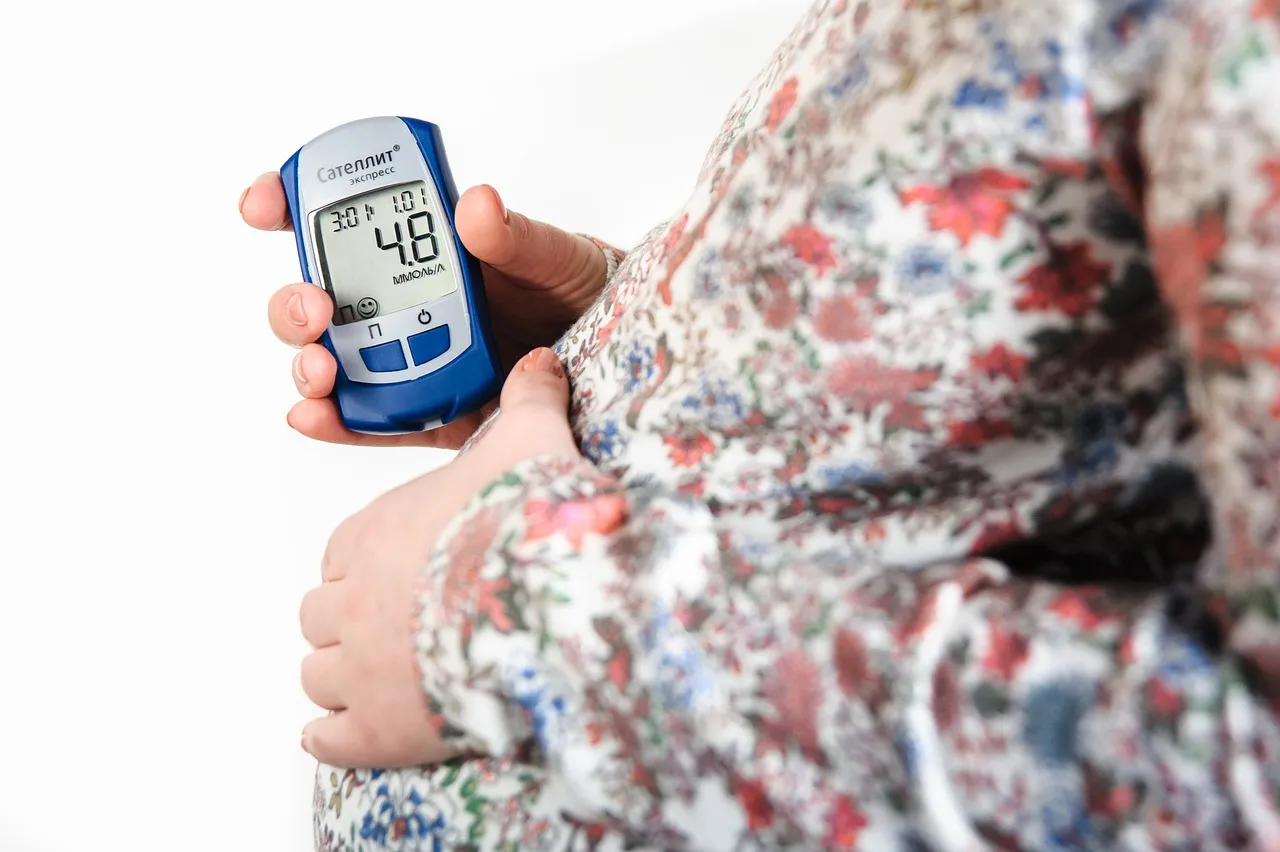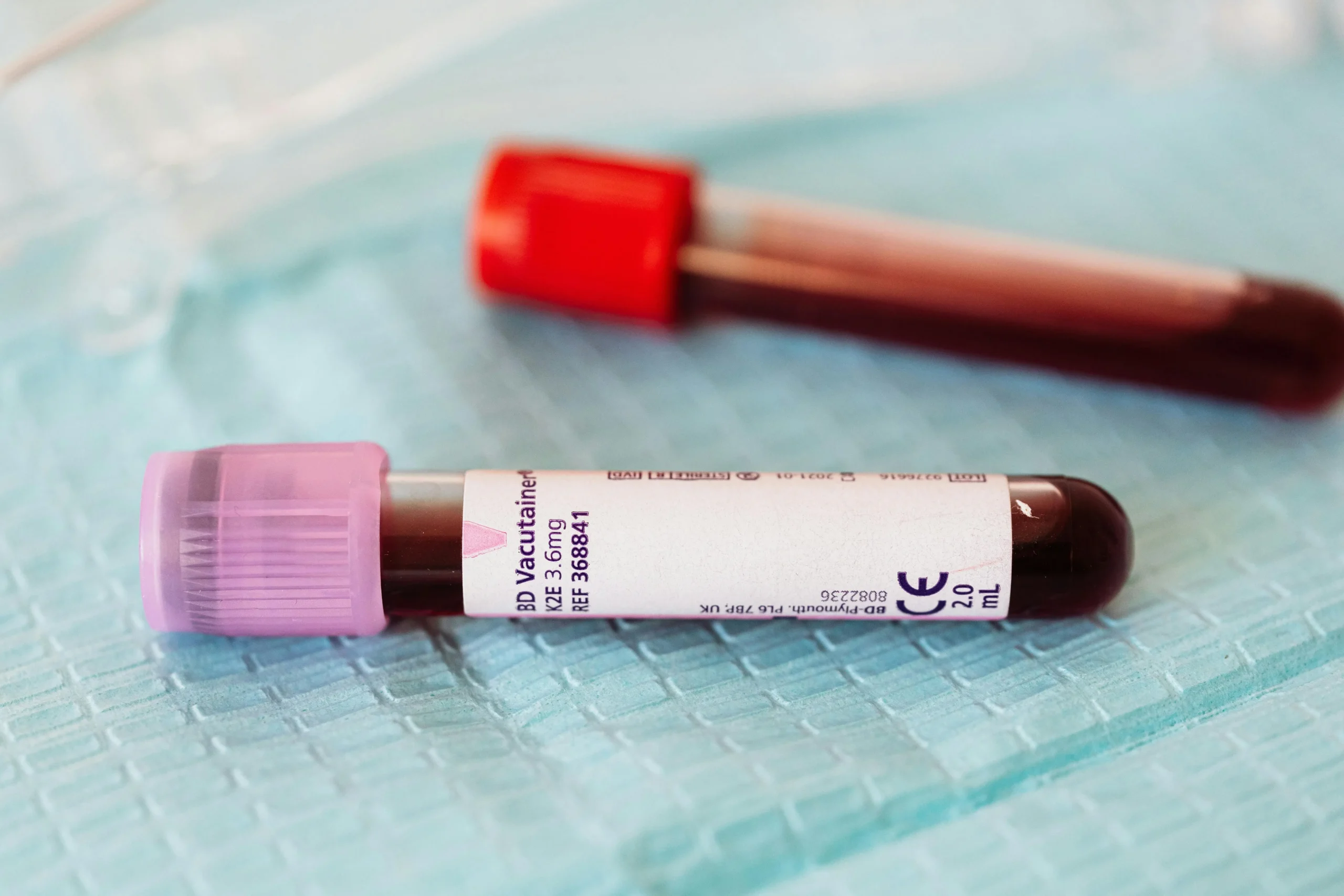Sugar is everywhere—hidden in our coffee, snacks, soft drinks, and even “healthy” foods. While many people cut back on its intake for weight management or dental health, for those with diabetes, controlling sugar intake is essential for maintaining stable blood glucose (sugar) levels. This is where sugar substitutes come in.
Sugar substitutes provide sweetness while delivering fewer calories than regular sugar (sucrose), or no calories at all. Commercially available sugar substitutes not only differ from each other in chemical composition, but also in short- and long-term impact on blood sugar. That’s why choosing the right one is an important step towards achieving your health goals.
What are the types of sugar substitutes?
Sugar substitutes belong to any of 3 major categories, which are:
I. Artificial sweeteners
These are lab-made sugar substitutes designed to provide sweetness without adding calories. Because they are hundreds or thousands of times sweeter than table sugar, only small amounts are needed. Examples include:
- Aspartame
- Sucralose
- Saccharin
- Acesulfame potassium (Ace-K)
- Neotame
- Advantame
II. Sugar alcohols (Polyols)
Despite their name, sugar alcohols contain neither ethanol nor table sugar. They are found in some fruits and vegetables, but are also manufactured for use in sugar-free products. Unlike artificial sweeteners, sugar alcohols typically contain some calories and carbohydrates, though significantly fewer than table sugar. So, they don’t cause blood sugar spikes. Examples of sugar alcohols include:
- Xylitol
- Erythritol
- Sorbitol
- Isomalt
- Mannitol
III. Natural sweeteners
Natural sweeteners, also called novel sweeteners, come from plant-based or naturally occurring sources. Some provide zero calories, while others contain a few carbohydrates. Diabetes-friendly examples include:
- Stevia
- Monk fruit extract
- Allulose
12 Best sugar substitutes for diabetes
Each sugar substitute varies in sweetness, calories content, and impact on blood sugar. Here’s a closer look at the best FDA-approved options.
1. Aspartame (Equal, NutraSweet, Sugar Twin)
Since the 1970s, aspartame has been authorized by the Food and Drug Administration (FDA) for use in the U.S. It is about 200 times sweeter than table sugar. It is used alone or in combination with other sugar substitutes to sweeten a variety of foods and beverages, including diet soda, sugar-free gum, instant coffee, and breakfast cereal.
Aspartame breaks down when heated, so it isn’t a good option for use in baking and cooking. Other artificial sweeteners are heat-stable.
Whereas other artificial sweeteners contain no calories, aspartame delivers a few calories when consumed. However, only a tiny amount of aspartame is needed to sweeten food products, making its calorie content almost zero.
According to the FDA, the sweetener has an acceptable daily intake (ADI) of 50 milligrams per kilogram (mg/kg) of someone’s body weight. This means that a 132-pound (60 kg) person needs to consume 75 packets of the sweetener to reach the ADI.
Aspartame is not safe for people with phenylketonuria (PKU)—a rare inherited condition where someone is unable to metabolize phenylalanine, a compound of aspartame.
2. Saccharin (Sweet’N Low, Necta Sweet)
Saccharin is the oldest artificial sweetener, first discovered in 1879 and FDA-approved in the 1970s. It contains no calories and is 200–700 times sweeter than sugar. It is used in a number of beverages and processed foods. Saccharin has a bitter aftertaste, especially when used in high concentration. Thus, manufacturers combine it with other artificial sweeteners to combat this unpleasant aftertaste.
Because of animal studies in the 1970s that linked saccharin consumption and bladder cancer in laboratory rats, saccharin-containing products had to carry a warning label. However, a number of studies have since failed to establish a similar relationship in humans.
The FDA-determined ADI of saccharin is 15 mg/kg of body weight. A 132-lb person has to consume 45 packets per day to reach the ADI.
3. Acesulfame potassium (Sweet One, Sunett)
Acesulfame potassium, also called acesulfame K or ace-K, is about 200 times sweeter than sugar. It can be used as a tabletop sweetener or in manufacturing to sweeten diet sodas, protein powders, sugar-free candy, and dairy products.
Ace-K also has a bitter aftertaste, so manufacturers blend it with other sweeteners (typically sucralose or aspartame). Actually, combining ace-K with another sweetener creates a synergistic effect on sweetness, meaning the blend is sweeter than its individual components.
According to the FDA, more than 90 studies support the safety of ace-K. It has an ADI of 15 mg/kg of body weight. A 132-lb person needs to consume 23 tabletop packets of the sweetener to attain the ADI.
4. Sucralose (Splenda, Equal Sucralose, N’Joy)
Sucralose is a zero-calorie sweetener that is about 600 times sweeter than regular table sugar (sucrose), from which it is made. It is the most commonly used artificial sweetener and is used to sweeten many products, including beverages, baked goods, and chewing gum.
110 FDA-reviewed studies suggest that the sweetener is safe for human consumption. Sucralose has an ADI of 5 mg/kg of body weight, meaning that a 132-lb (60 kg) person needs to consume at least 23 packets in one day to reach the ADI.
5. Neotame (Newtame)
Neotame is a no-calorie sweetener made from aspartame, but is 30–60 times sweeter. It is 7,000–13,000 times sweeter than sugar. The FDA approved neotame for general purpose use in 2002.
A 132-lb individual can consume up to 23 packets of the sweetener per day to reach its ADI of 0.3 mg/kg of body weight.
6. Advantame
Advantame is a relatively new artificial sweetener that is derived from aspartame and vanillin. It has no calories, is about 20,000 times sweeter than sugar, and about 110 times sweeter than aspartame. It acquired FDA approval in 2014 and has since been added to a range of beverages, chewing gums, baked goods, dairy products, and many other foods.
The ADI of advantame is 32.8 mg/kg or body weight. To reach this limit, a person weighing 132 pounds needs to consume 4,920 packets in a single day.
7. Xylitol (XyloSweet, DureLife)
Xylitol looks and tastes like table sugar, but provides 40% fewer calories. It cannot be broken down to tooth-damaging acids by bacteria in your mouth, which is why it is commonly used in toothpaste, mouthwash, sugar-free chewing gum, and candies. It can also be used at home for cooking and baking.
Like most other sugar alcohols, it can cause digestive issues like bloating, diarrhea, abdominal pain, and rumbling.
Xylitol is processed differently in dogs and can cause dangerously low blood sugar levels when consumed. Call your vet doctor immediately if you think your dog has taken a xylitol-containing product.
8. Sorbitol
Sorbitol is naturally present in apples, peaches, apricots, pears, and cherries, but can also be manufactured from glucose. It is about 60% as sweet as table sugar and delivers 35% fewer calories. It is used in sugar-free chewing gum, mints, and diet drinks.
Foods containing sorbitol can cause indigestion and diarrhea. That’s why the sweetener can be used medically to produce a laxative effect when taken as an oral solution or rectal enema.
9. Erythritol (Swerve, Whole Earth)
Erythritol is a non-caloric sugar alcohol that is 60–80% as sweet as table sugar. It can be used as a tabletop sweetener or found in store-bought confectionery, chewing gum, and soft drinks. It is heat stable, so it can be used in cooking and baking.
When you consume erythritol, only about 10% enters the colon where it is fermented by gut-dwelling bacteria, so it’s less likely than other sugar alcohols to cause digestive issues. The rest of it is absorbed and removed from the body through urine.
In 2023, a Cleveland Clinic research study identified a correlation between consuming erythritol and increased risk of getting a heart attack and stroke. The FDA reviewed the published paper and determined that the observed correlation did not signify a causal link. Therefore, erythritol is still generally recognized as safe for consumption.
It has no FDA-determined ADI but the European Food Safety Authority (EFSA) established an ADI of 0.5 g/kg of body weight, meaning that a 154-pound (70 kg) person can safely consume no more than 35 g of the sweetener per day.
10. Stevia (Truvia, PureVia, Sun Crystals)
Steviol glycosides, the naturally occurring chemical compounds from which stevia sweeteners are made, are extracted from the leaves of Stevia rebaudiana, a plant native to South America. Stevia has no calories and is 200–400 times sweeter than table sugar. It is used as a tabletop sweetener or in a variety of manufactured beverages and foods. It is often combined with other sugar substitutes to offset its bitter aftertaste.
Stevia sweeteners made from high purity steviol glycosides are generally recognized as safe by the FDA. But this safety classification is not extended to stevia leaves and crude stevia extracts, whose import into the U.S. is illegal.
The Joint FAO/WHO Expert Committee on Food Additives (JECFA) set the ADI of stevia at 4 mg/kg of body weight. To reach this, a 132-lb person needs to consume 9 packets of the sweetener in one day.
11. Allulose (Nature’s Besti, Wholesome Yum)
Allulose, also called D-allulose or D-psicose, is a sugar that can be found naturally in small amounts in raisins, wheat, figs, molasses, and maple syrup. It is about 70% as sweet as table sugar but only about 10% as many calories. And unlike table sugar, allulose is not broken down by oral bacteria, so it doesn’t contribute to formation of dental cavities. It can be bought for use as a tabletop sweetener or found in certain gums, yogurt, and cereal.
According to the FDA, allulose is generally recognized as safe and so far, no ADI has been set. When consumed in large amounts, the sweetener may cause gut issues, such as bloating, abdominal pain, and diarrhea.
12. Monk fruit Extract (Monk Fruit In The Raw, Lakanto, SweetLeaf)
Monk fruit, also referred to as Lo Han Guo or Siraitia grosvenorii Swingle fruit, is a small round fruit native to Southern China. Monk fruit sweeteners contain no calories and are about 100–250 times sweeter than sugar. They are used to sweeten dairy products, soft drinks, candies, and juices. They can also be used in cooking and baking because the sweetener is heat-stable.
The FDA recognizes monk fruit extract as generally safe for consumption but hasn’t determined its ADI. While there have been no documented side effects of monk fruit sweeteners, many manufacturers combine the extract with erythritol, which may cause bloating, diarrhea, and stomach rumbling in some people.
How to choose the best sugar substitute
Picking the right sugar substitute depends on your health goals, taste preferences, and how you plan to use it. Key factors to consider include:
- Blood sugar impact. If you need to keep your blood sugar down, choose substitutes with little to no effect on blood sugar, such as stevia, monk fruit, erythritol, or artificial sweeteners.
- Taste preference. Some substitutes, like ace-K, stevia, and saccharin have unpleasant aftertastes. If you have to use them, select brands where they are blended with other sweeteners.
- Usage in cooking and baking. Aspartame breaks down when heated, making it unsuitable for baking and cooking. Also, some substitutes like stevia and erythritol don’t brown well in baking, while others like xylitol and allulose caramelize and brown well.
- Digestive tolerance. Sugar alcohols can cause bloating, diarrhea, rumbling, or abdominal pain when consumed in large amounts. If you have a sensitive stomach, stick to erythritol or non-sugar alcohol sweeteners.
- Availability and cost. Organic options of common substitutes and some sweeteners, like allulose and monk fruit, are more expensive or harder to find than other sugar substitutes.
- Dental health. Sugar alcohols like xylitol and sorbitol can help prevent cavities, making them a good choice for gums and mints.
Do sugar substitutes help with weight loss?
They can, but it depends on how you use them. Since most sugar substitutes have fewer calories than sugar, they can help reduce your overall calorie intake, which may support weight loss.
However, some research suggests that artificial sweeteners might increase cravings for sweet foods, leading to overeating. Additionally, replacing sugar substitutes won’t lead to weight loss if your overall diet and lifestyle habits don’t support it.
The bottom line
Choosing the right sugar substitute depends on your health goals, taste preferences, and how you plan to use it. Natural options like stevia and monk fruit offer plant-based, zero-calorie options, while artificial sweeteners offer intense sweetness without affecting blood sugar. Sugar alcohols like erythritol and xylitol provide a middle ground but may cause digestive issues in large amounts.
No single sweetener is perfect for everyone. Some work better for baking, while others are better suited for beverages. Understanding the pros and cons of each can help you make an informed choice for better health and satisfaction. Remember, while most sugar substitutes are considered safe, their long-term effects—especially for newer ones—are still being studied.











